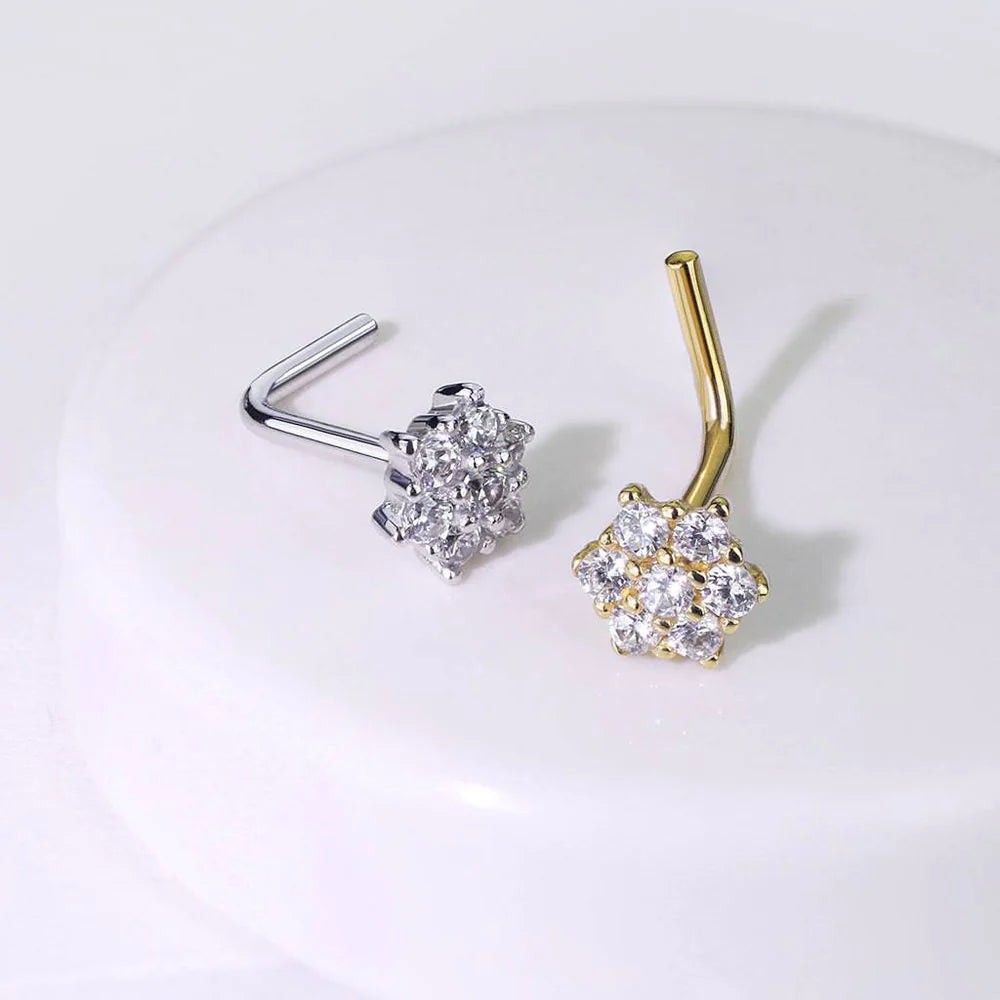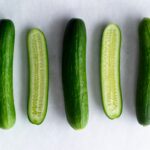Are you noticing an unpleasant smell coming from your nose piercing? You’re definitely not alone. A smelly nose piercing is a common concern, and while it can be annoying, it’s usually manageable. This article will explore the reasons behind nose piercing odor and provide effective solutions to help you eliminate it. Whether you’re new to nose piercings or have had them for years, knowing why this happens and how to address it is key to keeping your piercing healthy, hygienic, and odor-free. We’ll discuss factors like aftercare mistakes, bacterial buildup, and the impact of jewelry materials on piercing smell. Plus, we’ll give you practical tips on cleaning and maintaining your nose piercing to keep it smelling fresh. Ready to say goodbye to that unpleasant nose piercing smell and hello to a clean and confident you? Keep reading!
Common Reasons for Nose Piercing Odor
Experiencing a smelly nose ring is a common issue, and it often stems from a few key causes. One of the most frequent culprits is inadequate aftercare. When you first get your nose pierced, proper aftercare, as instructed by your piercer, is absolutely essential. Neglecting these instructions can easily lead to a buildup of bacteria and bodily fluids, which are major contributors to that noticeable odor.
The type of jewelry you wear also plays a significant role in whether your nose piercing develops a smell. Certain metals, particularly nickel and lower-grade materials, are more likely to react with your skin. This reaction, combined with natural skin secretions, can produce an unpleasant odor. Furthermore, using incorrect cleaning methods or harsh cleaning products can disrupt the natural bacterial balance around your piercing. This imbalance can also lead to a foul smell. Understanding these common causes is the first step in effectively dealing with and preventing nose piercing odor.
Effective Ways to Prevent Nose Piercing Smell
Preventing a smelly nose piercing is definitely preferable to treating one. Fortunately, with a few straightforward steps, you can greatly minimize the chances of developing an unpleasant odor. The most important step is regular cleaning. Clean your piercing consistently using a sterile saline solution or a gentle, unscented soap. It’s crucial to avoid over-cleaning, as this can dry out your skin and interfere with the natural healing process, ironically potentially leading to irritation and odor.
Choosing the right jewelry material is also critical. Opt for high-quality, hypoallergenic materials such as surgical steel, titanium, or 14kt gold. These materials are less likely to react with your skin and cause issues. Avoid changing your jewelry too often, especially during the initial healing period. Frequent changes can irritate the piercing and increase the risk of infection. Finally, be mindful of skincare products. Avoid applying lotions, creams, or makeup directly on or around the nose piercing, as these products can accumulate and clog the piercing, contributing to odor and potential complications.
Proper Cleaning and Care Routine for Your Nose Piercing
Maintaining a strict cleaning and care routine is vital for ensuring your nose piercing remains hygienic and free from unpleasant smells. Always begin by thoroughly washing your hands with antibacterial soap before you touch your piercing. Clean the area around the piercing gently using a sterile saline solution or a mild, fragrance-free soap. It’s important to avoid harsh substances like alcohol or hydrogen peroxide, as these can be too strong and can irritate the surrounding skin, hindering the healing process.
After cleaning, rinse the area thoroughly with warm water to remove any soap or saline residue. A key point to remember is to never twist or turn the jewelry while cleaning. This can disrupt the healing tissue and potentially cause micro-tears, increasing the risk of infection. When drying, gently pat the area dry with a clean paper towel or allow it to air dry completely. Avoid using cloth towels or cotton balls, as they can leave behind fibers that may irritate the piercing and harbor bacteria.
Effective Home Remedies for Smelly Nose Piercings
If you’re already experiencing a smelly nose piercing, several home remedies can help alleviate the issue. One of the most recommended remedies is using a saline soak. Prepare a solution by mixing a quarter teaspoon of non-iodized sea salt with eight ounces of warm, distilled water. Soak a clean cotton ball or gauze pad in the saline solution and apply it to the piercing for several minutes. Repeat this saline soak twice daily for about a week. This can significantly reduce odor and promote healing.
Another popular home remedy is tea tree oil, known for its natural antibacterial and antiseptic properties. Always dilute tea tree oil by mixing a few drops with a carrier oil, such as coconut oil or jojoba oil. Apply the diluted oil to the piercing area using a clean cotton swab. While tea tree oil can be effective in combating odor-causing bacteria, it’s crucial to use it sparingly and diluted, as it can be irritating to some skin types. Remember, these home remedies are intended as temporary solutions to help manage symptoms. They are not substitutes for consistent and proper cleaning and care. If the problem persists, professional advice is recommended.
When to Seek Professional Advice for a Smelly Piercing
While many cases of smelly nose piercings can be resolved with home care, there are times when professional help is necessary. If you have consistently practiced home remedies and maintained a rigorous cleaning routine, but the odor persists or worsens, it’s important to consult a professional piercer or a healthcare provider. These professionals can properly evaluate your piercing and determine if there is a more serious issue, such as an infection or other complications that require medical attention.
It’s crucial not to ignore a persistent odor, especially if it’s accompanied by other signs of infection. Symptoms like excessive redness, swelling, pain, or discharge from the piercing site are red flags. Ignoring these symptoms can lead to more significant health problems if an infection is left untreated. Seeking timely professional advice ensures that any underlying issues are correctly diagnosed and treated, safeguarding your health and the longevity of your piercing.
Additional Tips to Prevent Infections and Odor in Nose Piercings
Preventing infections and unpleasant odors in your nose piercing is essential for its long-term health and appearance. Here are some extra tips to help maintain a clean and fresh piercing:
- Limit Touching: Avoid touching your nose piercing with unwashed hands. Also, discourage others from touching it to minimize the introduction of bacteria.
- Avoid Airborne Contaminants: Be mindful of environmental contaminants such as dust, dirt, and pet dander, which can come into contact with your piercing and cause irritation or infection.
- Skip Pools and Hot Tubs: Refrain from swimming in public pools, hot tubs, and natural bodies of water until your piercing is fully healed. These environments can harbor bacteria that can cause infections.
- Clean Bedding: Use a clean pillowcase and try to avoid sleeping directly on your face. This reduces the exposure of your piercing to potential bacteria and irritants.
- Gentle Products: Avoid using harsh cleansers or skincare products that contain alcohol or fragrances on or near your piercing. These can irritate the sensitive skin and disrupt healing.
- Keep Hair Away: Keep hair away from your nose piercing as much as possible. Hair can carry oils and bacteria that can contribute to odor and irritation.
- No Twisting or Playing: Resist the urge to play with or twist your nose jewelry. Unnecessary movement can irritate the piercing and introduce bacteria into the site.
- Diet Considerations: Be aware that certain foods, like garlic and very spicy dishes, can sometimes increase bodily odors. While not a direct cause of piercing odor, being mindful of diet can be a holistic approach to body hygiene.
Steps to Take When Your Nose Piercing Smells
If you are currently dealing with a smelly nose piercing, here are actionable steps you can take to address and resolve the issue:
- Clean Thoroughly: Begin by cleaning your nose piercing thoroughly with a sterile saline solution or a mild, fragrance-free soap. Ensure you are gentle and thorough in cleaning the area around the piercing and the jewelry itself.
- Avoid Over-Cleaning: While cleaning is crucial, avoid over-cleaning. Cleaning too frequently can strip your skin of its natural oils, which can lead to irritation and potentially worsen the odor issue. Twice a day is generally sufficient.
- Consider Jewelry Material: Think about changing your jewelry to a higher-quality, hypoallergenic material. Surgical stainless steel, titanium, or 14kt gold are excellent choices that minimize skin reactions and potential odor.
- Use Home Remedies: Implement home remedies like saline soaks or diluted tea tree oil applications as described earlier. These can help to combat bacteria and reduce odor effectively.
- Seek Professional Evaluation: If the smell persists despite your best efforts, or if it worsens or is accompanied by signs of infection, it’s time to seek professional help. Consult with your piercer or a healthcare provider to rule out any infection or other complications that require medical intervention.
Frequently Asked Questions About Smelly Nose Piercings
Q: How long does a nose piercing take to heal completely?
A: The full healing time for a nose piercing varies from person to person and depends on factors like individual healing ability and adherence to aftercare. Generally, a nose piercing can take anywhere from 6 to 12 weeks to heal fully.
Q: Is it okay to remove my nose piercing if it smells bad?
A: No, it’s generally not recommended to remove your nose piercing if it has a bad smell. Removing the jewelry can trap bacteria inside the piercing hole, potentially leading to an infection that is harder to treat. It’s better to address the odor while keeping the piercing open by cleaning it properly and seeking professional advice if needed.
Q: Can I use rubbing alcohol or hydrogen peroxide to clean my nose piercing?
A: No, you should not use rubbing alcohol or hydrogen peroxide to clean your nose piercing. These substances are too harsh and can damage the skin cells around the piercing, leading to irritation and delayed healing. Stick to sterile saline solution or mild, fragrance-free soap for cleaning.
Q: Could a smelly nose piercing indicate an infection?
A: Yes, a smelly nose piercing can be a sign of an infection, particularly if the odor is strong or foul-smelling and accompanied by other symptoms like redness, swelling, pain, warmth, or discharge. If you suspect an infection, it is important to seek professional medical advice promptly to prevent complications.
Conclusion
Dealing with a smelly nose piercing can be bothersome, but it’s a problem that is usually solvable with the right approach. By understanding the common causes and taking proactive preventive measures, you can effectively maintain a fresh and odor-free nose piercing. Always remember to diligently follow the aftercare guidelines provided by your piercer, regularly clean your piercing with a sterile saline solution or a gentle, unscented soap, and choose high-quality jewelry materials. If you are currently struggling with a smelly nose piercing, try the recommended home remedies and cleaning steps. However, it’s important to recognize when home care is not enough. If the odor persists, worsens, or is accompanied by signs of infection, promptly seek professional advice to rule out and treat any underlying issues. With consistent care and attention, you can confidently say goodbye to that unpleasant odor and enjoy your clean, healthy, and beautiful nose piercing.

